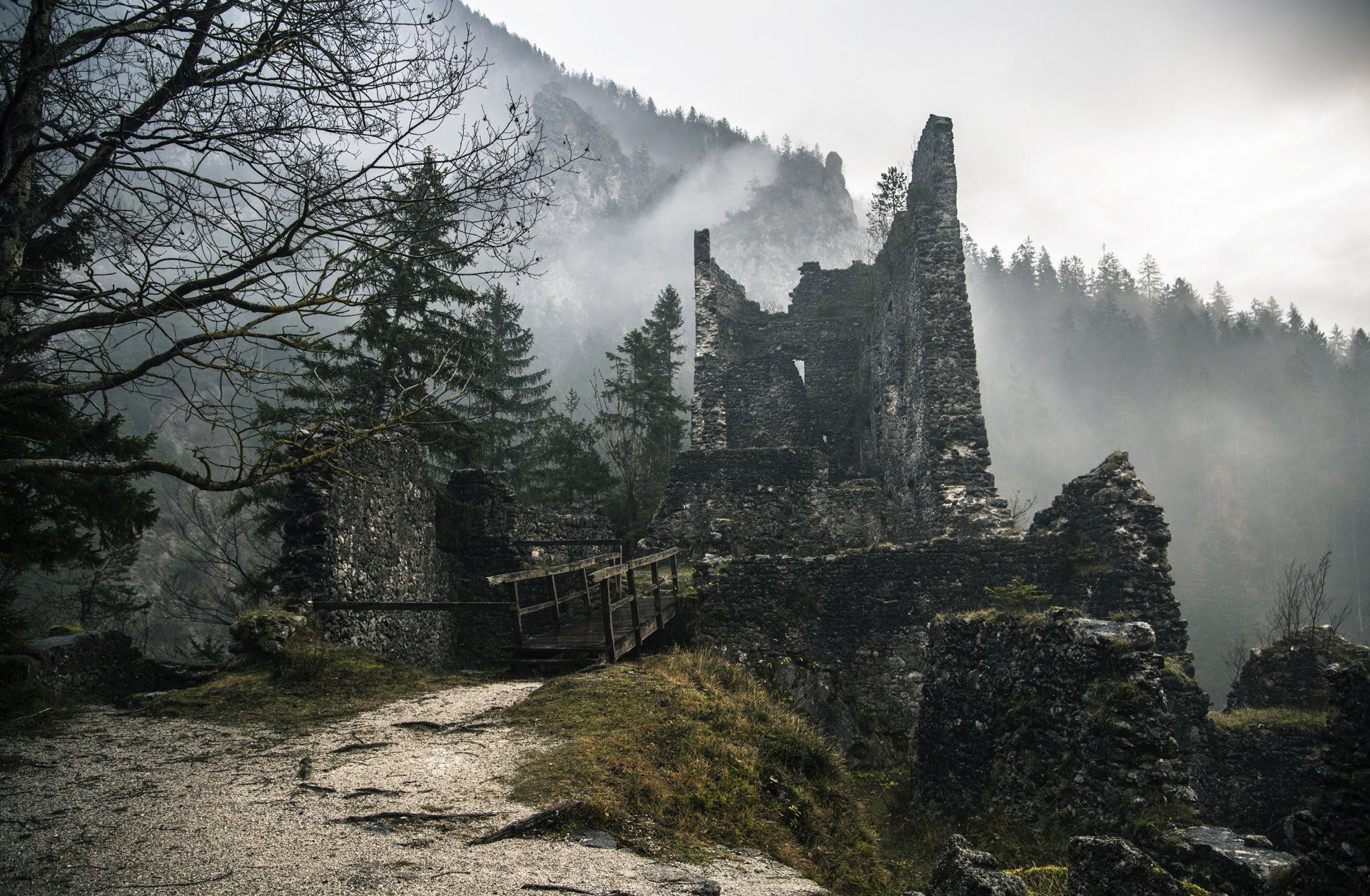LEARN TO STOP MAKING SENSE
Christian Bergmann • September 9, 2021
Evil is an absurdity...
There are many ways not to talk about the problem of evil but I learned the hard way.
I was younger and stupider and armed to the teeth with all kinds of arguments about so many things. Philosophical curiosity is one thing but when you’re young and you treat your faith as a fully furnished set of answers to life’s questions, the train you’re riding is likely to come to a grinding, messy halt. For me, this moment came through an interaction with my grandfather.
Sighart Bergmann was young during the outbreak of World War II but he remembered Adolf Hitler’s parades through the streets of Germany. He remembered his mother, leaning down and, in a hushed voice, saying, ‘That is a very evil man’ as Hitler passed by.
Naturally, for my grandfather the problem of evil was not an abstract one. For me it was. My existence was largely untouched by the presence of genuine evil and great tragedy. He, on the other hand, had witnessed evil walk his streets. His experience was lived and concrete. During a conversation in our family one evening, this topic was broached. In my eagerness to enter the fray with all of my ideas and abstract philosophizing, I said something so profoundly stupid, so utterly embarrassing that I will probably never repeat it to anyone as long as I live.
After I said this thing, my grandfather looked me dead in the eyes. ‘You weren’t there.’ He spoke with an intensity that comes only from German blood and old age. ‘You weren’t there. I watched families being dragged from their homes. You didn’t. I watched as God abandoned them.’ He actually had to sit down because he was so flustered by my stupidity. ‘Better minds than yours have tried to wrestle with this problem.’ That was him closing off any further contribution from me on this issue, and fair enough.
That conversation shook me. It was a revelation of my sheer insignificance in the face of a question that not only haunted people, but ruined them. It was also the beginning of something new, a process of unlearning my faith, in a sense. It was a process of learning how to dwell amidst senselessness when all you want to do is make sense out of it. It was only later, when I delved deep into the writings of an Eastern Orthodox theologian, David Bentley Hart, that I was able to articulate something that had been born as only an intuition through that conversation.
The intuition was this: the problem of evil is not, fundamentally, a problem that needs answering.
It is instead a moral tragedy
that demands to be set right.
This is something we feel in our bones. The reason why people get so passionate about it, the reason people can’t hold onto faith any longer, is not primarily because evil is philosophically problematic. It’s because it is, by its very nature, an absurdity, a senseless reality, a deeply irrational part of human existence.
Based upon my own experience, I’m tempted to think that Christians don’t wrestle with this senselessness enough. In The Doors of the Sea, Hart writes about how theology has often made the problem of evil worse. Whether it’s the Calvinist tradition or the Thomist, attempts to incorporate genuine evil and human suffering into some part of God’s ‘higher plan’ renders God ‘morally loathsome’ – a high price to pay for our peace of mind. A few neat distinctions here or there and Auschwitz magically disappears in a puff of logic.
Even Tolkien, a man whose writings I love, held this line: God only permits evil to the extent that a greater good is obtained, and could not have been obtained, without it. It makes one think that the eternal beatitude of some can only be bought at the price of other people’s suffering and ruin. And what sort of life is that? What kind of God is that?
Instead, the only real ‘answer’ to evil, such as it is, is to call it by its true name: a corruption of God’s good creation. One of the reasons why evil has, in Christian theology, traditionally been referred to as ‘nonbeing’, or as a privation
of being, is because of this: it’s a grotesque distortion of something inherently good and inherently beautiful. If evil seems senseless, it’s because it is. If it seems absurd and irrational, it’s because it is.
But it’s only in this space of the senseless that we can truly learn the meaning and character of hope. I don’t mean optimism – not like Voltaire’s character Dr. Pangloss, going around declaring, ‘It’s all for the best!’ I mean real hope. Hope in the Christ who will come in judgment to set right everything that has gone wrong, and will reveal them as wrong and not as part of who he is. It was part of the early Christian hope, articulated with great beauty by Gregory of Nyssa, that in the fire of Christ’s judgment evil will one day come to an end and nothing will be left outside the world of goodness.
In this tension between evil’s absurdity and Christ’s goodness, hope can begin to take shape. And I no longer know how to say anything more than that.
But as always, Hart says it best:
‘We can rejoice that we are saved not through the immanent mechanisms of history and nature, but by grace; that God will not unite all of history’s many strands in one great synthesis, but will judge much of history false and damnable; that he will not simply reveal the sublime logic of fallen nature, but will strike off the fetters in which creation languishes; and that, rather than showing us how the tears of a small girl suffering in the dark were necessary for the building of the Kingdom, he will instead raise her up and wipe away all tears from her eyes – and there will be no more death, nor sorrow, nor crying, nor any more pain, for the former things will have passed away, and he that sits upon the throne will say, “Behold, I make all things new”’.
[1] Gregory of Nyssa, On the Soul and Resurrection. https://www.newadvent.org/fathers/2915.htm
[2] David Bentley Hart, In the Aftermath: Provocations and Laments. Eerdmans. 116-7
Christian Bergmann is a handsome devil (it must run in the family) and writer for
Melbourne Catholic. He lives in Perth with his wife and daughter.

Sometimes, we categorise people out of Gods kingdom because they don’t meet the brief, they don’t fit our preconceived ideas and expectations. So, this Christmas, when I put my nativity in pride of place to celebrate “the King has Come”, I am reminded that a King didn’t come, at least not in the eyes of all those waiting on one. The nativity was the ultimate Kris Kringle (maybe the first!), where we quite simply don’t know what to expect and should always be prepared for a surprise, but it will be a gift.

St John of the Cross wrote: “If a man wishes to be sure of the road he treads on, he must close his eyes and walk in the dark.” When we can’t see, and can’t make any sense of things, keeping on can be the deepest form of trust. It can serve a profound purpose, for the dark night of the soul is sometimes the space between who we have been and who we will become.


